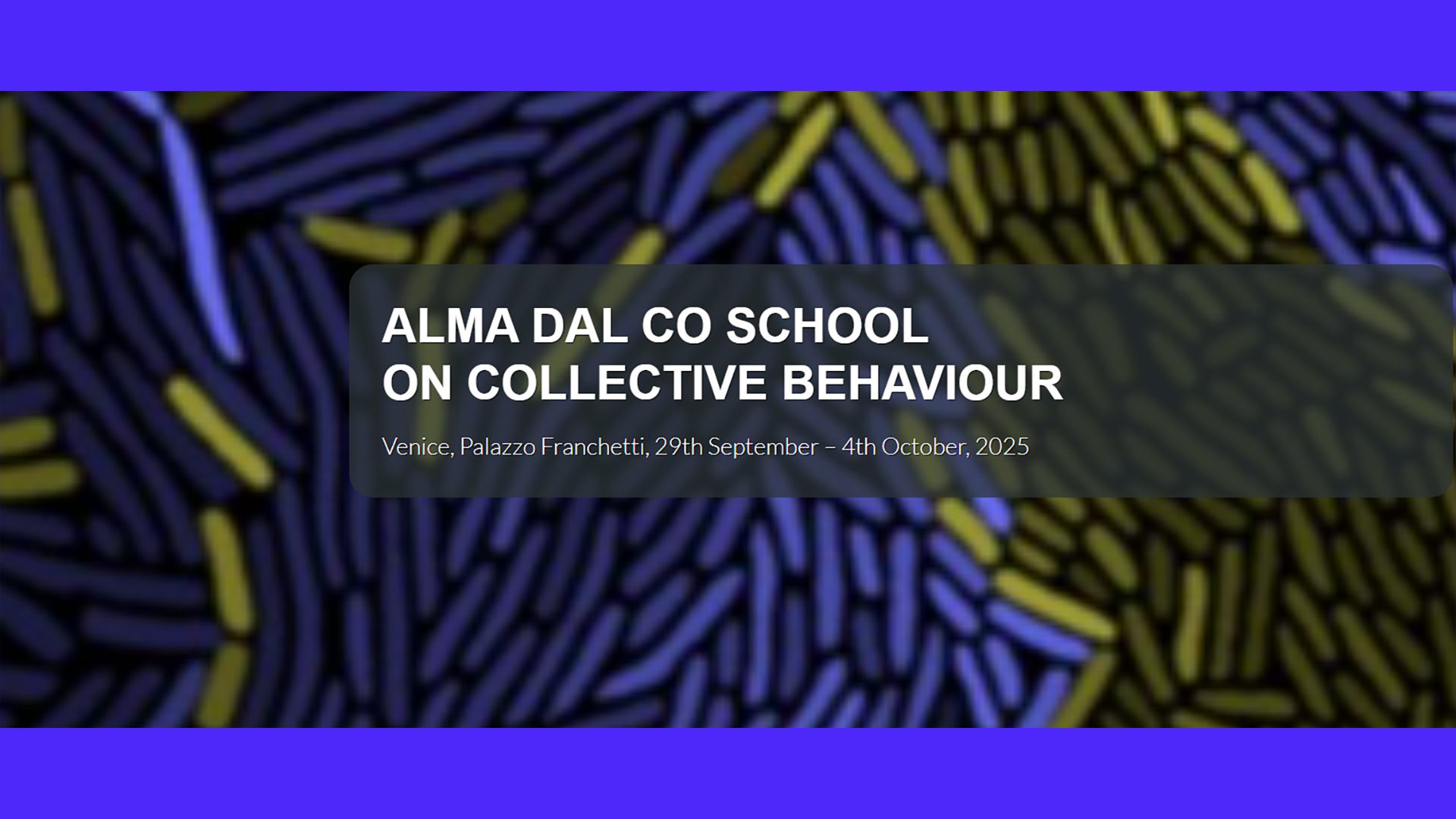29 Settembre – 5 Ottobre
Overview
An interdisciplinary meeting on collective behaviour across biological systems. The Alma Dal Co School aims to inspire early career researchers to pursue groundbreaking research in the spirit of Alma Dal Co’s passion for knowledge, innovation, and multidisciplinary research. Collective behaviour occurs at every scale in the spatiotemporal organisation of living matter: molecules within cells, microbes within communities, cells within multicellular organisms, and animals in societies all display organised behaviours that transcend the properties of any single element in isolation. Collective, macroscopic dynamics emerge as the result of interactions among the composing units, often encompassing and integrating lower-level heterogeneity. Changes in collective behaviour can be characterised on short time scales, at which systems are established and function, but also on longer, evolutionary time scales, where their functions get shaped by selection.Studying collective behaviour involves methods of observation and modelling that span across disciplines: biochemistry, molecular biology, physics, informatics, ecology, and evolution. The school will cover a wide range of those approaches and encourage exchange among all participants, harnessing the diversity of backgrounds, career stages, and expertise.
Topics
The school will cover a variety of biological systems displaying collective behaviour, from cellular movement and microbial coordination, to the self-organisation of tissues and aggregates, the ecological and evolutionary dynamics of social insects, and the behaviour of human societies. It is organised in six modules, spanning different spatial and temporal scales of organisation.At the smallest spatial scale, collective behaviour manifests itself in the coordinated movement of single cells within supra-cellular structures, such as aggregates, swarms, or biofilms. Similarly, cell coordination is central when cells are embedded in a multicellular environment, for instance in tissue rearrangement or during development. At a supra-organismal scale, animal societies display a range of collective behaviours. Inclusion of heterogeneity within collectives, both in terms of individual behaviour and of interaction networks, is key to understanding the emergence of functionality at the level of groups or populations, such as for collective decision-making or collective intelligence.Collective behaviour involves different time scales. On short time scales, researchers are interested in understanding the mechanisms that underpin the exchange of information and the spatial arrangement of individuals. On a longer time scale, understanding how collective behaviours emerged during the history of life and what selective pressures shape them requires to consider—and sometimes mimic—evolutionary processes.
School Objectives & Ethos
School Objectives & EthosThe School on Collective Behaviour perpetuates Alma Dal Co’s open, bold, and generous approach to science, pursuing a twofold objective. First, young scientists will be exposed to exciting research on a particular topic, through different points of view and interdisciplinary expertise. Second, senior participants will have the opportunity to meet talented students and to hear about complementary approaches to their own research. The School is organised in a highly interactive format, to foster interactions across disciplines and career stages. Development of a shared language, and a common understanding of different approaches will be supported by introductory lectures given by world experts in collective behaviour research. Ample time will be allocated to discussion and exchange of ideas among participants. Conversations will benefit particularly from the presence of all lecturers for the entire duration of the school.
The Alma Dal Co School on Collective Behaviour
https://almadalcoschool.github.io/
Date: 29th Sep – 4th Oct, 2025
Location: Venice
Selection is going on:
acceptance by 20th April, 2025
Registration by 2nd May, 2025
Contacts: Laura Padoan +39 0412407711


